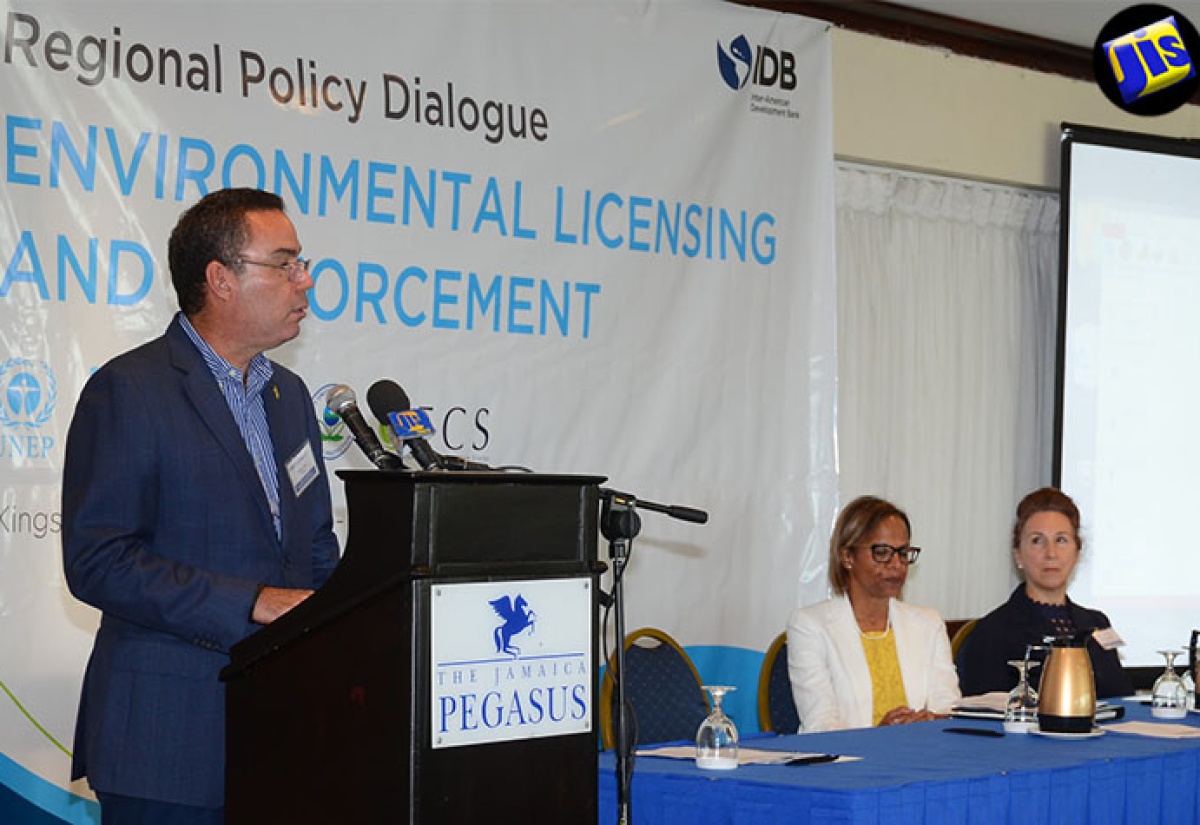Licensing Regime for Environmental Impact Assessment (EIA) Consultants
By: , July 29, 2016The Key Point:
The Facts
- In the meantime, Mr. Vaz commended the Inter-American Development Bank, (IDB), for hosting the conference, which he said “is of critical importance at this time, especially when taken in the context of this Government’s growth agenda initiatives”.
- The Caribbean Regional Policy Dialogue is the first of its kind in the region.
The Full Story
The Government is pursuing the enactment of Environmental Impact Assessment (EIA) Regulations, which will introduce a licensing or certification regime for EIA Consultants.
According to Minister without Portfolio in the Ministry of Economic Growth and Job Creation, Hon. Daryl Vaz, this is expected to bring greater levels of control over their operations.
“This Government is committed to sound environmental governance, and the environmental rule of law, and as such, is dedicated to providing the environmental and planning regulators with the necessary support and resources to get the job done,” he said.
The Minister was addressing the opening session of a Caribbean Regional Policy Dialogue on Environmental Licensing and Compliance conference, at The Jamaica Pegasus hotel on July 27.
He said the regulations, along with the Natural Resources Valuations, are being formulated by his Ministry in conjunction with the National Environment and Planning Agency (NEPA), to provide additional safeguards to protect the environment.
In the meantime, Mr. Vaz commended the Inter-American Development Bank, (IDB), for hosting the conference, which he said “is of critical importance at this time, especially when taken in the context of this Government’s growth agenda initiatives”.
“While we pursue development projects for the benefit of Jamaica, and create jobs for Jamaicans, it is absolutely critical for us to preserve and conserve our environment and the natural resources with which we are blessed,” he said.
In her remarks, General Manager for the IDB’s Caribbean Country Department, Therese Turner-Jones, stressed the importance of Caribbean countries working “more closely in identifying common approaches to mitigate adverse environmental impacts”.
“The IDB hopes that this dialogue will foster a fresh conversation among the official environmental agencies and international development community representatives (in dealing with this issue),” she said.
The two-day conference, which is being staged by the IDB’s Environmental Safeguards Unit, is focused on discussing government policy on licensing and enforcement of environmental safeguards.
The Caribbean Regional Policy Dialogue is the first of its kind in the region. It brings together senior officials from environmental licensing and enforcement authorities representing IDB’s regional member countries and several Organization of Eastern Caribbean States (OECS) members, to discuss innovations and best practices in environmental safeguard policy taking place across the Caribbean.
It will provide an opportunity for participants to share experiences and garner up-to-date information from development agencies dealing with environmental issues, including CARICOM, United Nations Development Programme (UNDP), United Nations Environment Programme (UNEP), OECS, the Caribbean Development Bank (CDB) and the US Environmental Protection Agency (EPA).


